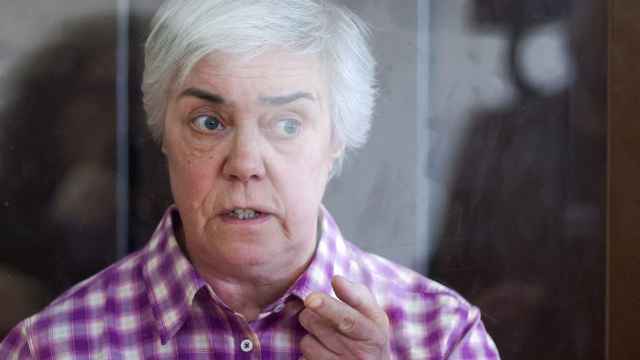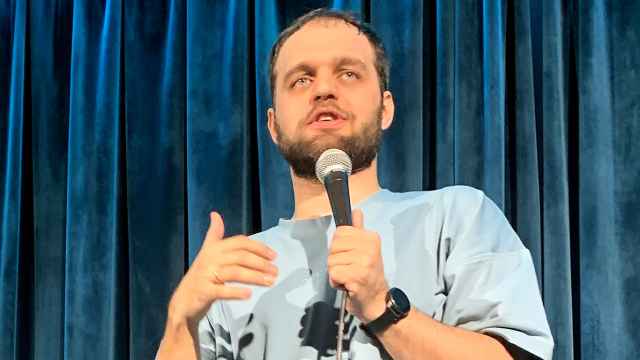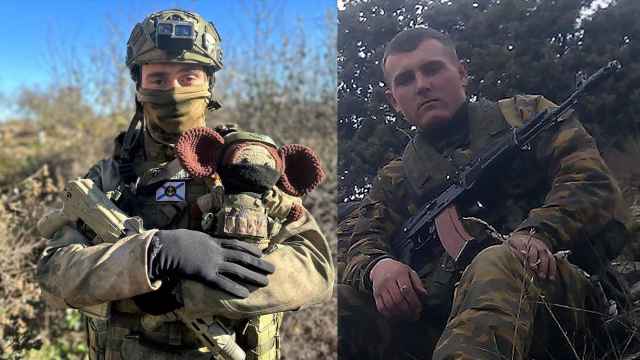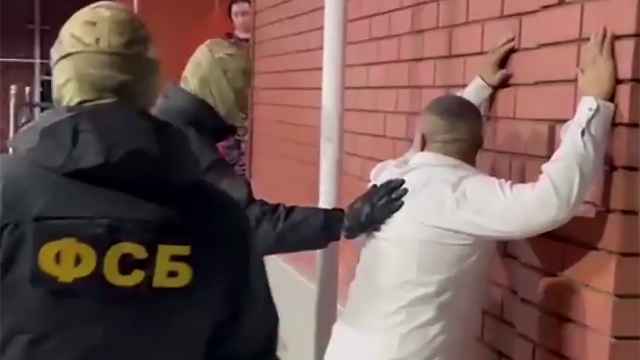President Vladimir Putin's regional representative met with local officials and townspeople in Pugachyov, a town of some 40,000 near the Volga River, saying no ethnic group would be expelled en masse, but that migration officials are checking residents' paperwork. The envoy, Mikhail Babich, assured journalists that investigators are hard at work, probing both the fatal brawl and the rallies and threats that followed.
Tensions have been roiling since Sunday when, according to prosecutors, a 20-year-old former paratrooper, Ruslan Marzhanov, died of stab wounds inflicted by a 16-year-old in a fight over a girl. The suspect, an ethnic Chechen, was detained Sunday and confessed to the killing, prosecutors added.
In the days since Marzhanov's death, hundreds of locals have marched through town calling for the deportation of people from Chechnya and the mostly Muslim North Caucasus region where it is located.
Police said this week that they had prevented a vigilante attack on the town's small Chechen community and an arson attempt at the Halal café, reportedly frequented by patrons from the North Caucasus. Regional officials, meanwhile, called on protesters to refrain from "mob justice."
To minimize tensions, Pugachyov's Chechens, estimated at about 100 people, evacuated an unspecified number of youngsters believed to be "hard to control" or "radical," Babich told RIA Novosti on Wednesday.
That afternoon, locals briefly blocked a railroad, after twice blocking a major highway earlier this week, according to media and police reports.
Officials and Marzhanov's father pointed out Wednesday that the crime leading to this week's tensions had nothing to do with ethnicity.
Mikhail Fedotov, head of the Kremlin's human rights council, said the murder was "an everyday crime," using a Russian term that often refers to domestic violence and interpersonal conflicts.
"This was not a murder motivated by interethnic hate," he said. "This is really, unfortunately, an everyday crime."
"What mattered was not ethnicity but vodka, and the transformation of Russia into [a nation of] alcoholics," Russian media quoted the dead man's father as saying. "If we didn't have drinking establishments, nothing would have happened."
While it is not clear what role liquor played in the deadly brawl, which took place late Saturday outside a café, local authorities did issue a recommendation this week asking vendors to suspend alcohol sales in town until July 19. Earlier reports had said some of the protesters had been drunk, and a regional trade official, Olga Putina, told RIA Novosti that the suggested ban was linked directly to the protests, so as "not to provoke" more trouble.
So far, much of the local crowds' wrath, as well as official scrutiny, has focused on migration and residency status, while little has been said about addressing underlying causes of tension, such as socioeconomic problems or drastic culture clashes.
By Wednesday evening, federal migration officials in Pugachyov had discovered 18 residents from Chechnya in violation of migration rules, including five people without residency registration and 13 registered at fictitious addresses, Babich told RIA Novosti. Local residents, meanwhile, called on the governor of the Saratov region, where the town is located, to reinstate Soviet-era residency permits, or propiska, BBC's Russian service reported. It was not immediately clear whether the murder suspect's residency documents were in order.
A Message from The Moscow Times:
Dear readers,
We are facing unprecedented challenges. Russia's Prosecutor General's Office has designated The Moscow Times as an "undesirable" organization, criminalizing our work and putting our staff at risk of prosecution. This follows our earlier unjust labeling as a "foreign agent."
These actions are direct attempts to silence independent journalism in Russia. The authorities claim our work "discredits the decisions of the Russian leadership." We see things differently: we strive to provide accurate, unbiased reporting on Russia.
We, the journalists of The Moscow Times, refuse to be silenced. But to continue our work, we need your help.
Your support, no matter how small, makes a world of difference. If you can, please support us monthly starting from just $2. It's quick to set up, and every contribution makes a significant impact.
By supporting The Moscow Times, you're defending open, independent journalism in the face of repression. Thank you for standing with us.
Remind me later.





